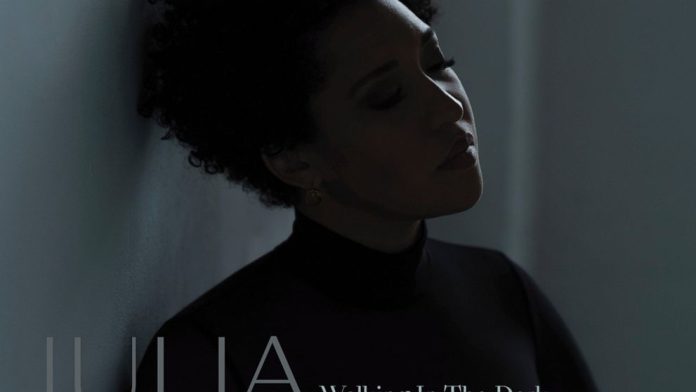
By MIKE SILVERMAN, Associated Press
NEW YORK (AP) — “Walking in the Dark,” Julia Bullock (Nonesuch)
No one who has followed Julia Bullock’s career will be surprised that her first solo album is made up of unconventional and deeply personal choices.
The Black American soprano, one of the most talented singers of her generation, proudly defies easy categorization. At home in a wide variety of genres — from modern and 18th century opera, to classical lieder, to spirituals and popular song — Bullock is fiercely dedicated to social justice, and that passion imbues everything she does.
In her album notes, she says the seven tracks on the album have “contributed to my development as a classical singer,” are “inclusive of traditions across cultures, and celebrate a diversity of thought, expression and experience.” In an interview, Bullock cited influences as varied as Nina Simone, Leontyne Price and Judy Collins.
But her intriguing lineup wouldn’t count for much if she didn’t have the vocal artistry to bring them to life.
That she does. And the order in which she’s arranged the tracks takes the listener on a journey full of surprises.
The first sound we hear on the opening number, Oscar Brown Jr.’s “Brown Baby,” is Bullock singing an unaccompanied phrase from the low end of her register. She gradually moves up her range as the piano (played by her husband, Christian Reif) joins in and the song becomes an impassioned plea for a better world for a new generation. By happy coincidence, Bullock said, she had just told her producer at Nonesuch that she wanted to open with this song after learning she was pregnant. (Their first child, a boy, was born this fall.)
The next number, “One by One” by Connie Converse, allows Bullock to display the beauty of her warm, vibrato-rich sound. This haunting song, written by a little-known composer who led a troubled life and disappeared at age 50, depicts for Bullock “the inevitability of solitude … something we all have to deal with.”
The somber mood is abruptly broken by the first crashing orchestral chord of “Memorial de Tlatelolco” from John Adams’ “El Niño,” It’s his setting of a Spanish poem by Rosario Castellanos decrying the massacre by Mexican armed forces of hundreds of unarmed civilians protesting the 1968 Olympics.
Bullock’s voice, joined at times by a chorus, soars in outrage and defiance over the forces of the Philharmonia Orchestra, with Reif conducting.
The next two numbers take us back to piano accompaniment and reflect Bullock’s heritage and keen awareness of racial injustice. First is the traditional spiritual “City Called Heaven,” followed by what Bullock calls “a 20th century spiritual,” — “I Wish I Knew How it Would Feel to be Free,” by Dick Dallas and Billy Taylor.
These are followed by the longest and perhaps best-known selection on the album, Samuel Barber’s “Knoxville: Summer of 1915,” set to a passage from James Agee’s “A Death in the Family,” with the Philharmonia again conducted by Reif.
In the space of 15 minutes, Barber and Agee conjure up a childhood memory of summer twilight, the warmth of a loving family, and the terror and inevitability of death. Bullock said she was drawn to the piece in part because her father died when she was 9, as Agee’s did when he was 6.
“Knoxville” was commissioned by soprano Eleanor Steber and has been recorded by many since, including by Price, yet Bullock’s version sounds fresh and deeply felt.
The album ends on a wistful note, with “Who Knows Where the Time Goes,” by Sandy Denny. “I always knew I wanted to close with that,” Bullock said. “I grew up with a Judy Collins recording my mother used to play, and it’s one of my favorite songs of all time.”
If there’s one complaint to be made about the album it’s that it clocks in at a mere 43 minutes, even though standard CDs easily hold more than an hour of music. But along with the CD Nonesuch is issuing a vinyl recording, which has far less room.
And maybe it’s not such a bad thing for this singular artist to leave us wanting more.
___
This story was updated on Dec. 1 to correct the orchestra Bullock’s husband conducted for the album to the Philharmonia Orchestra.


